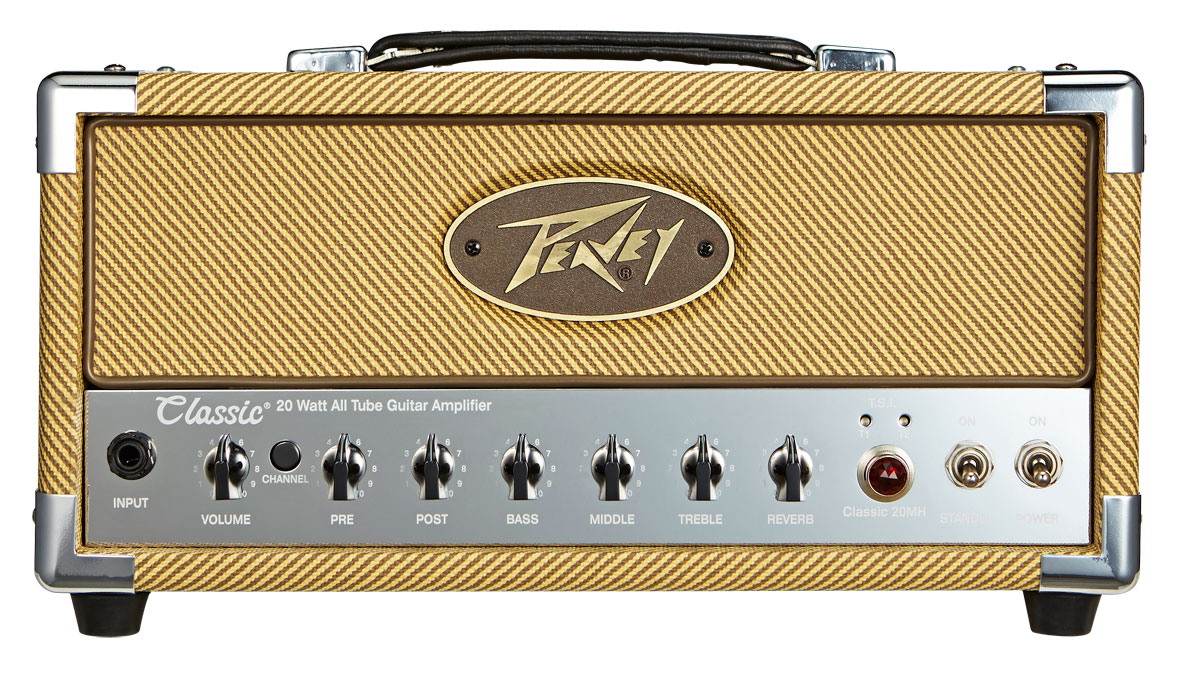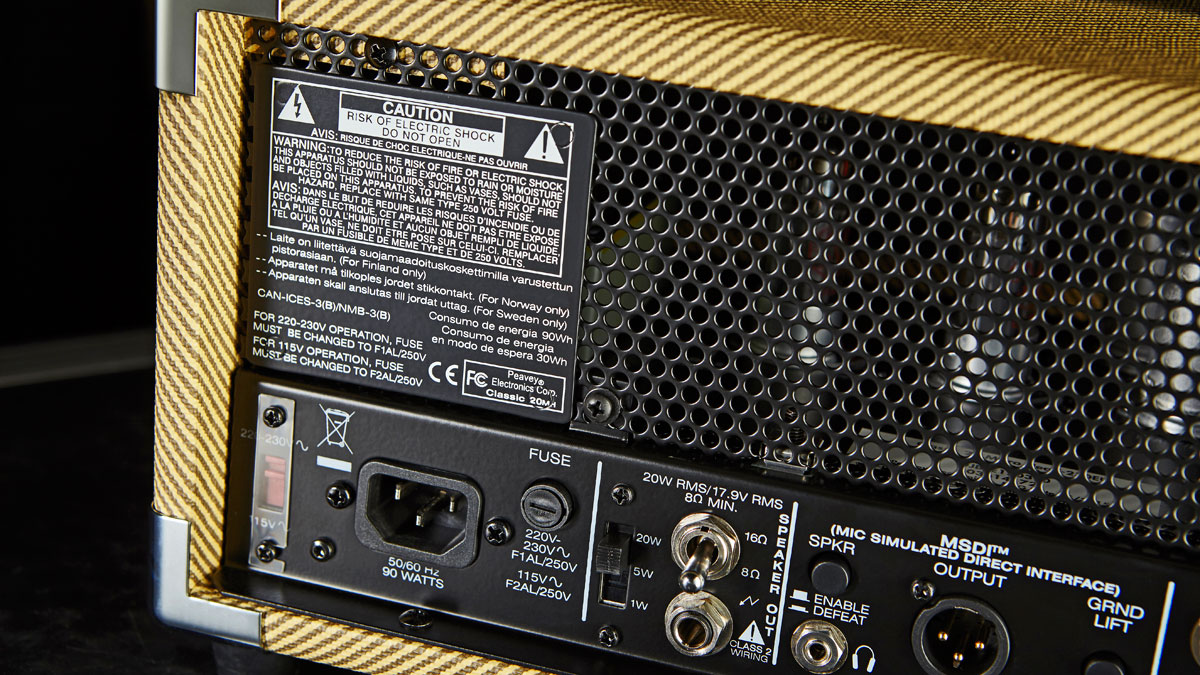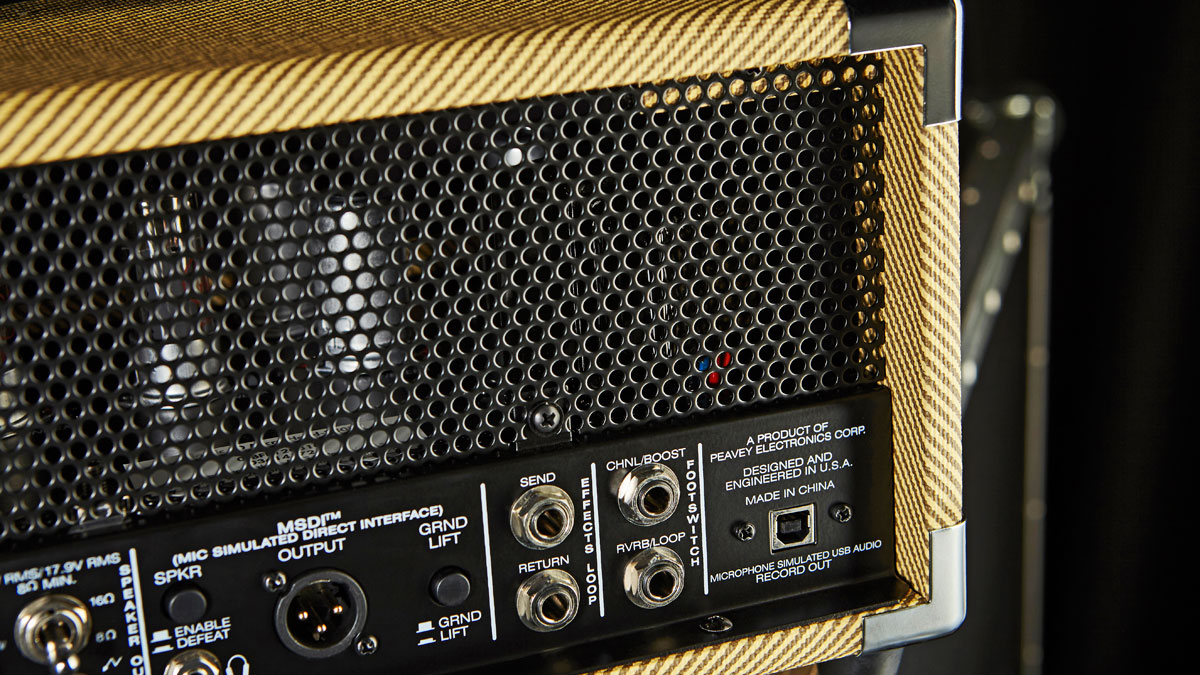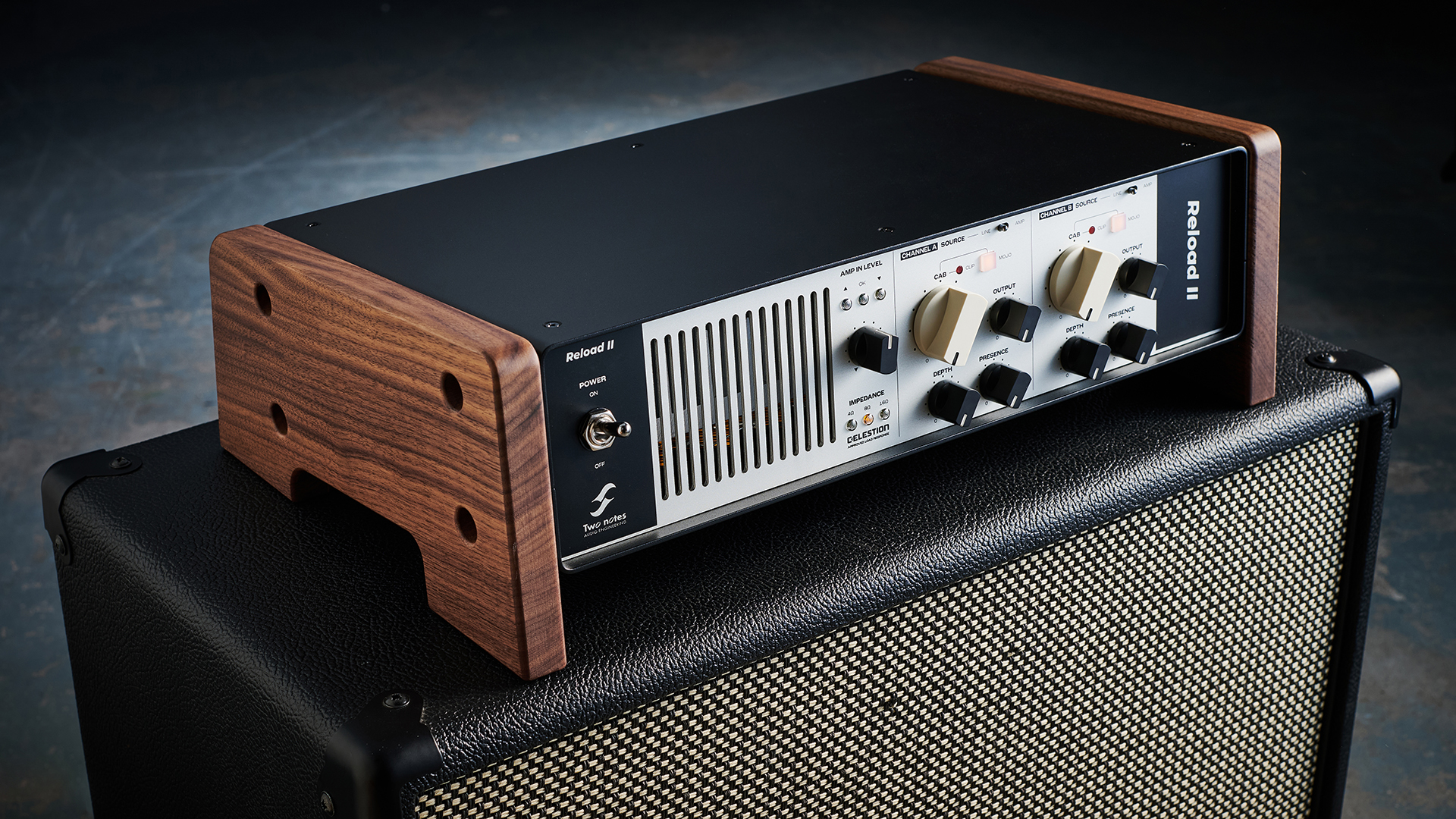MusicRadar Verdict
The Classic is ideal for blues, country, and anything else under the 'Americana' label.
Pros
- +
A versatile tone with wide dynamic range that can be precisely controlled with Vari-Class.
Cons
- -
Okay, it is cheaper. But the footswitch should be supplied as it is with the other two amps in the range.
MusicRadar's got your back

Peavey Classic 20 MH

Peavey Classic 20 MH

Peavey Classic 20 MH
The Classic 20 MH takes Peavey's long- running and highly regarded Classic series and reworks it for the Mini Head format.
Again, we have a single input socket feeding a dual-channel preamp with shared EQ, and controls for clean volume, overdrive gain and master volume (using Peavey's old-style pre and post names), bass, mid, treble and reverb. The internal electronics layout and rear panel are identical to the ValveKing 20 MH, with the same speaker, attenuator, recording and headphones output, effects loop and footswitch functions, and the same dual-EL84 output stage.
The Classic 20 MH has a more focused sonic palette in comparison to the ValveKing. There's a punchier midrange and an edgier distortion tone, which team well with the dual-EL84 output stage - making a practically perfect platform for country, blues and classic rock.
Dating back to 1991, the Classic range is one of Peavey's stalwarts and the tweed covering leaves you in no doubt as to the genres it's aimed at. Driven with the right guitar, the Classic can go from vintage Allman-era Southern rock to an excellent twang that'll inspire any country picker.
Strat players can pull the heavier, Buddy Whittington-type of tone from it just as easily as the clarity of Stevie Ray, while for semi-acoustic players, the Classic is almost purpose-built for rockabilly and redneck jazz. Its frequency range is ideally matched with the P-90 and the slightly brighter humbucking tones of Gretsch's Filter'Tron, perfect for Brian Setzer or Danny Gatton styles, although the 20-watt output stage doesn't quite have enough clean headroom for live use, unless its mic'd up.
All three amps in the Mini Head impress with their similar back panel features: the MSDI output sounds quite realistic and delivers a good clean signal to live or studio desks, while the USB connector works faultlessly on our Win7 PC DAW. A good word is due for the built-in reverb, too, which sounds a lot more expensive than it is and easily frees up an outboard digital effect.
Peavey's manufacturing and design expertise has been fully leveraged with these three heads; they look great and sound very impressive, with power and clean headroom to handle most smaller gigs, and studio-friendly features that make a huge difference when it comes to getting tracks down fast. The price is reasonably competitive, bearing in mind these are all real valve amps and all three heads look and sound anything but bargain basement.
“This update reflects everything we believe modern gear should be”: Neural DSP gives the Nano Cortex an almighty power-up with free NanOS 2.0.0 system update
“It’s honestly got me thinking hard about adding one to my own studio set up”: Two Notes Reload II review
“Gloriously adorned with a gold edge burst finish over a gold paisley and sparkle top”: Gretsch unveils the Paisley Penguin – a rare bird that growls – and the Honey Dipper Special, a resonator for all your roots rock manoeuvres









